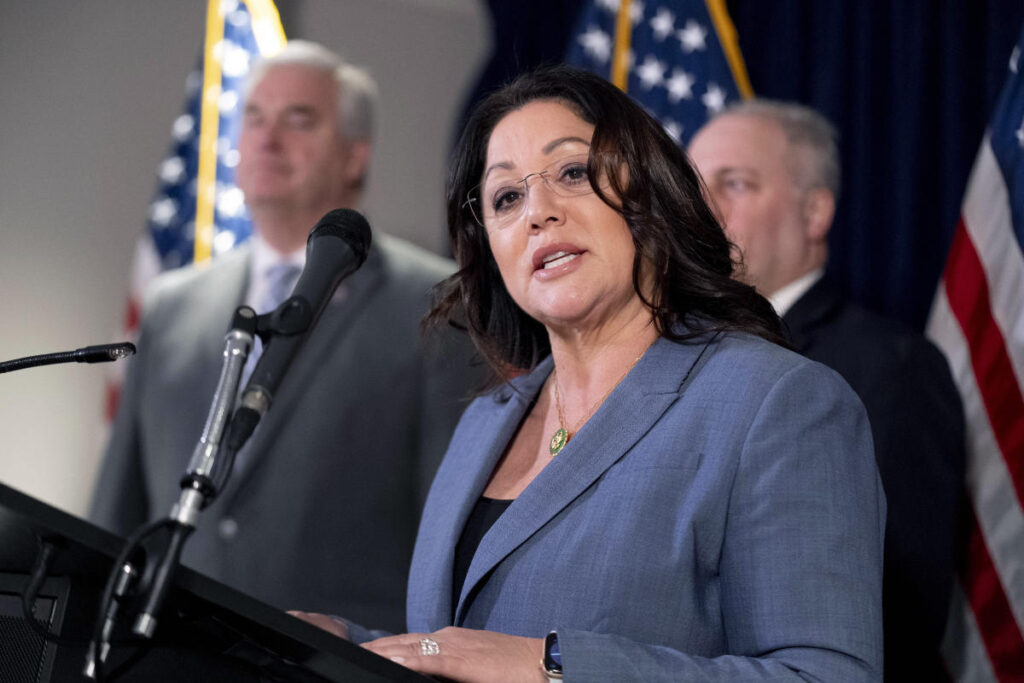On a significant note, President-elect Donald Trump has selected Oregon Representative Lori Chavez-DeRemer to head the Department of Labor in his second administration. The move comes at a time when she faces the challenge of Senate confirmation, a process that may prove smoother with the Republican party’s anticipated control of the Senate upon Trump’s inauguration on January 20, 2025. Despite a setback in her re-election bid earlier this month, Chavez-DeRemer’s nomination underscores a willingness by Trump to elevate a nominee whose stances resonated with labor unions in her district.
Chavez-DeRemer has built a pro-labor profile during her short tenure in Congress, notably supporting the Protecting the Right to Organize (PRO) Act. This legislation aimed to ease unionization efforts at the federal level and received significant backing from Democratic leadership. However, despite passing the House, the act lacked sufficient support in the Senate, illustrating the ongoing partisan divide on labor issues. Additionally, she co-sponsored legislation designed to protect public-sector workers from reductions in Social Security benefits related to pension schemes, emphasizing her commitment to workers’ rights even amid her previous party’s general alignment with business interests.
However, not all union leaders are embracing Chavez-DeRemer’s nomination with open arms. Skepticism looms due to Trump’s track record of favoring business-friendly policies during his initial term and appointing labor officials whose agendas did not align with pro-labor initiatives. Critics point out that, while Trump has positioned himself as a champion of the working class, his administration’s previous stances have often undermined labor rights. This dichotomy has left many labor leaders cautious, as they wonder how Chavez-DeRemer’s pro-labor inclinations will be reconciled with the overarching restrictive policies anticipated in a Trump-led administration.
The uncertainty surrounding her confirmation and the operational spotlight the Labor Department may find itself under highlights the potential complexities of Chavez-DeRemer’s role. With Trump accusing previous administrations of manipulating economic data, the Labor Department has the potential to become embroiled in political battles concerning labor statistics and employment figures. Should she be confirmed, Chavez-DeRemer’s approach to managing these dynamics—especially regarding overtime regulations and labor enforcement policies—will be closely monitored, particularly in light of Trump’s controversial immigration plans that could notably affect labor markets.
As she joins Trump’s Cabinet, Chavez-DeRemer would bring diversity to an administration characterized by wealth and privilege. Her election as the first Republican woman from Oregon to Congress exemplifies a shift within the party while also aligning with Trump’s inclusion of Latino leaders in his Cabinet. This reflects a strategic approach to broaden the Republican Party’s appeal and strengthen its connections to diverse voter bases, particularly during a period when identity politics and representation in leadership are increasingly scrutinized.
In summary, while Chavez-DeRemer’s nomination may signal an attempt by Trump to connect with labor constituents, the overarching skepticism from union leaders calls into question the administration’s actual commitment to labor rights. The dynamics at play within the Labor Department under her potential leadership will likely reflect broader partisan tensions, and her ability to navigate these issues could significantly shape the labor landscape in the U.S. Moving forward, all eyes will be on her confirmation process and the degree to which she can advocate for workers in an administration that has historically favored corporate interests.

